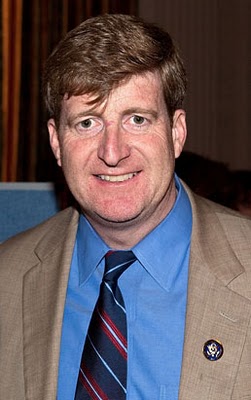Congressman Patrick Kennedy Says Parity in the Treatment of Mental Illnesses Is Needed
At the 10th International Conference on Bipolar Disorders in 2013, Congressman Patrick J. Kennedy addressed the combined audience of the Depression Bipolar Support Alliance (DBSA) and members of the International Society of Bipolar Disorders. He gave an inspiring speech about de-stigmatizing advocacy, and the need to have a unified message that promotes parity in the care of mental illnesses and physical illnesses. He suggested that mental disorders should be compared to heart attacks, with the mantra, “We want no more, and we should demand no less.”
Kennedy revealed his own dual diagnosis of bipolar disorder and alcohol abuse and the need to come out of the shadows, such as the basements of churches where people seeking treatment from Alcoholics Anonymous all too often remain unknown and anonymous.
Kennedy framed the issue of parity in the care of mental illnesses as a new civil rights battle. People with mental illness have been grossly discriminated against, stigmatized with derogatory epithets, and treated with indignity in the past. He stressed the need for all to advocate not so much for themselves, but for others, and to join in community to solve our current problem of isolation and alienation.
Kennedy indicated optimism for the parity mission and suggested that a good way to achieve it would be to join forces with another isolated group of young people—veterans returning from Iraq and Afghanistan. While many veterans return with brain injuries and post-traumatic stress syndrome (PTSD), seventy-two percent of veterans never go to the Veteran’s Affairs hospitals, many are ignored, and too many are locked up in prisons. Kennedy called them “prisoners of their war injuries” and “walking prisoners of war.” Twenty-two die each day by suicide.
Kennedy said we in the mental health community must stand with them and their hidden brain injuries. They are wounded, but they never receive a purple heart. He quoted a speech his uncle Robert F. Kennedy gave in Cape Town, South Africa in 1966 before anyone thought that apartheid would end. “It is from numberless diverse acts of courage and belief that human history is shaped. Each time a [person] stands up for an ideal, or acts to improve the lot of others, or strikes out against injustice, [that person] sends forth a tiny ripple of hope, and crossing each other from a million different centers of energy and daring, those ripples build a current that can sweep down the mightiest walls of oppression and resistance.”
In the mental health community we need each other and can’t afford different messages or fragmentation. Mental health advocates joining with veterans and their search for good care will be our salvation, as will our connectedness, togetherness, mutual respect, and these will yield solutions for both groups.


